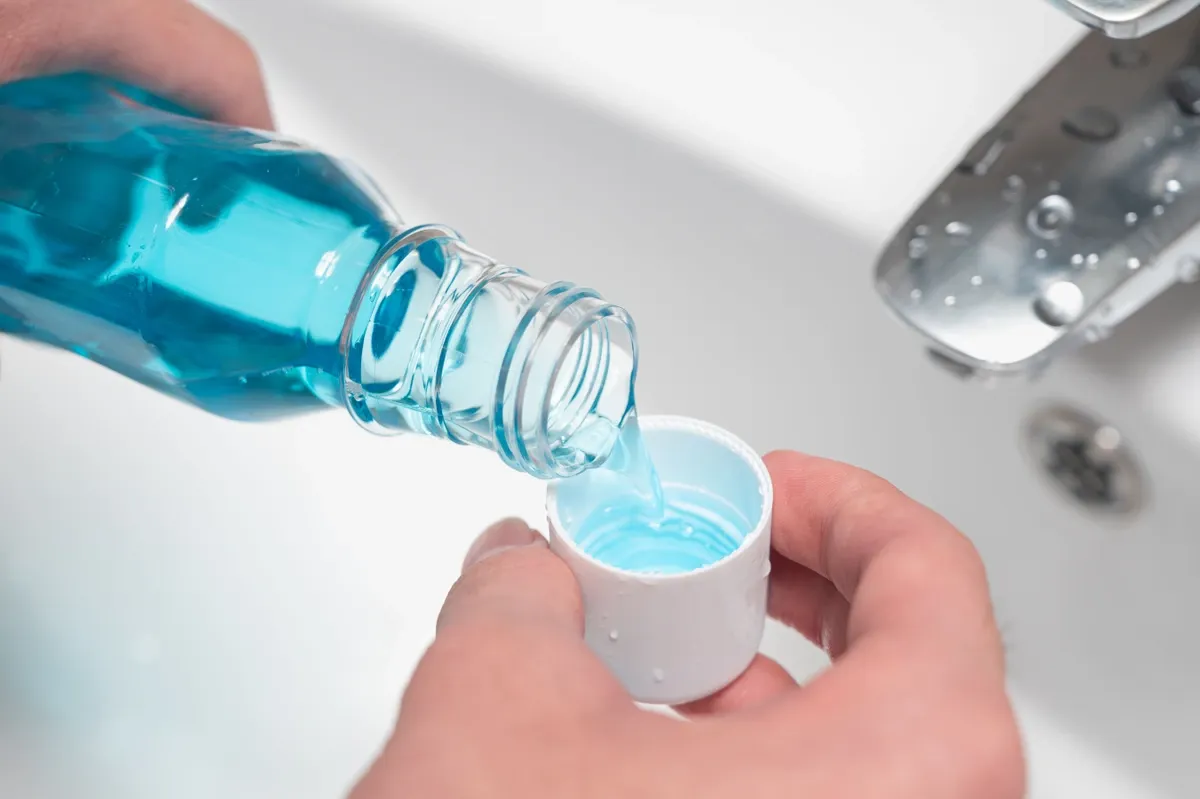Mouthwash is a staple in oral hygiene routines for its ability to kill bacteria, freshen breath, and promote oral health. However, many people experience a burning sensation while using it, raising questions about its causes and potential risks. This article explores the reasons behind mouthwash burn, its impact, and how to address it effectively.
Contents
ToggleWhy Does Mouthwash Burn My Gums?
Mouthwash burn is a common phenomenon caused by various ingredients in oral rinses. While the sensation may feel uncomfortable, it is not necessarily harmful.
1. Alcohol as a Key Culprit
Alcohol-based mouthwashes often cause a burning sensation due to their high alcohol content, sometimes exceeding 25%. Alcohol has antiseptic properties, killing bacteria and sanitizing the mouth. However, it can also irritate the tongue, gums, and other sensitive tissues, particularly if they are already inflamed or sensitive.
2. Active Ingredients in Mouthwash
In addition to alcohol, other active ingredients may contribute to the burn:
- Menthol: Derived from mint, menthol creates a tingling sensation that some people find overwhelming.
- Chlorhexidine: Known for its ability to reduce plaque, it can cause irritation or allergic reactions in rare cases.
- Hydrogen Peroxide: Found in whitening mouthwashes, it may sting sensitive tissues.
- Essential Oils: Ingredients like peppermint, eucalyptus, and thyme oil can intensify the burn, especially for sensitive users.
Why Does Mouthwash Burn So Bad?
The intensity of the burn often depends on individual sensitivity and the product formulation.
- Heightened Sensitivity: People with sensitive oral tissues or existing conditions like gum disease are more prone to experiencing discomfort.
- Concentration of Ingredients: Higher levels of alcohol or menthol amplify the burning sensation.
- Prolonged Exposure: Leaving mouthwash in your mouth longer than directed can exacerbate irritation.
Balancing Benefits and Discomfort
Mouthwash provides various benefits, but choosing the right formula is key to avoiding discomfort.
Benefits of Using Mouthwash
- Kills Bacteria: Alcohol and essential oils effectively eliminate germs that cause bad breath and gum disease.
- Whitens Teeth: Ingredients like hydrogen peroxide can brighten your smile.
- Strengthens Enamel: Fluoride-based mouthwashes protect against cavities.
Tradeoffs to Consider
- Effectiveness vs. Comfort: Alcohol-based rinses are powerful but may irritate. Alcohol-free alternatives may be gentler but less potent.
- Sensitivity to Ingredients: Finding a balance between active ingredients and personal tolerance is essential.
How to Soothe and Prevent Mouthwash Burn
If you find mouthwash burning your gums or mouth, here are some strategies to alleviate the issue:
1. Switch to Alcohol-Free Mouthwash
Alcohol-free mouthwashes are gentler on the mouth while still providing antibacterial benefits.
2. Look for Hypoallergenic Formulas
If you have sensitivities, opt for mouthwashes without menthol, mint, or other strong flavoring agents.
3. Limit Usage
Follow the instructions on the label and avoid overuse, as prolonged exposure can irritate tissues.
4. Consult a Dentist
A dentist can recommend therapeutic mouthwashes tailored to your needs, such as those designed for sensitive gums or specific oral health conditions.
Precautions When Using Mouthwash
To ensure safe and effective use of mouthwash:
- Avoid swallowing it, as it contains ingredients that can be toxic in large quantities.
- Discontinue use if burning persists or worsens, as this could lead to mouth ulcers.
- Supervise children to prevent accidental ingestion.
Conclusion
Mouthwash burn is often a result of its active ingredients, with alcohol and menthol being the primary culprits. While the sensation is usually harmless, it can be uncomfortable for some users. By understanding the causes, considering alternative formulations, and consulting dental professionals, you can maintain an effective oral hygiene routine without the discomfort of burning.
Remember, the key is to find a mouthwash that suits your individual needs while preserving your comfort and oral health.
